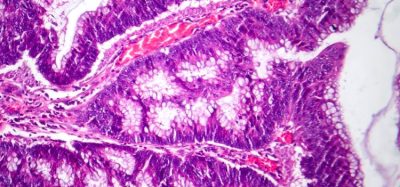Edible sensor delivers real-time antiretroviral dosage data
Posted: 17 November 2022 | Catherine Eckford (European Pharmaceutical Review) | No comments yet
HIV patients received real-time antiretroviral dosage data from an innovative edible sensor in a clinical trial.


An innovative ingestible sensor technology tested in an interventional clinical trial provided HIV patients with real-time antiretroviral dosage data, enabling them to better control their infection.
The drug regimen for 130 HIV patients was monitored by the Proteus Digital Health Feedback (PDHF) Information Technology system, which let patients know in real-time when a dose of medication had been taken. Data showed the participants were more adherent to antiretrovirals (ARVs), enabling them to experience lower viral loads.
The study is one of earliest that uses an FDA-approved ingestible sensor system for ARV therapy in HIV-infected adults. The findings are a significant step in measuring and monitoring medication adherence in HIV patients and developing real-time interventions to improve patient adherence.
PDHF uses a tiny edible sensor that is over-encapsulated along with medication. When ingested, it is sensed by a patch with an embedded monitor and sensor that is worn by patients. The monitor transmits a Bluetooth signal to a mobile device, which sends an encrypted message to a central server.
Clinical trial data for the ingestible sensor
Participants were recruited from HIV clinics in the US, randomised 1:1 to either an (information system) IS or usual care (UC) group.
The primary outcome of the intervention programme was adherence to antiretroviral therapy (ART). The secondary outcomes included participant satisfaction/acceptability of the system and plasma HIV RNA. According to the researchers, higher levels of adherence to ARVs are associated with better plasma HIV RNA control. Overall satisfaction rate for the system was >90 percent. A total of 112 (IS = 54, (UC = 58) participants who completed baseline with at least one follow-up data collection were included in analyses.
“When patients first enrolled in our study they were having trouble with consistent adherence to their medications,” stated Dr Eric Daar, co-principal investigator for study and Chief, Division of HIV Medicine at Harbor-UCLA Medical Center and Professor of Medicine at the David Geffen School of Medicine at UCLA.
Daar added that participants often expressed that the system provided the extra feedback and support they needed to successfully control their HIV infection.
“After more than two decades of improvement in technology, ingestible sensor technology is, to date, the most cutting-edge and accurate IT-based method for measuring and monitoring adherence behaviour with wireless and real-time processes through a mobile device,” explained Dr Honghu Liu, co-principal investigator for the study and chair of the Section of Public and Population Health in the UCLA School of Dentistry.
Investigators from UCLA, Nebraska Medical Center, Yale University and Harvard University were part of the research team who assessed the systems accuracy and evaluated the efficacy for monitoring and leveraging adherence to medications.
A $4 million grant by the National Institute of Mental Health (NIMH) supported the research.
The findings were published in The Lancet Ebiomedicine.
Related topics
Biopharmaceuticals, Biosensors, Clinical Development, Clinical Trials, Dosage, Drug Delivery Systems, Drug Development, Pharmacokinetics, Research & Development (R&D)
Related organisations
Harvard University, National Institute of Mental Health, UCLA, University of Nebraska Medical Center, Yale University









